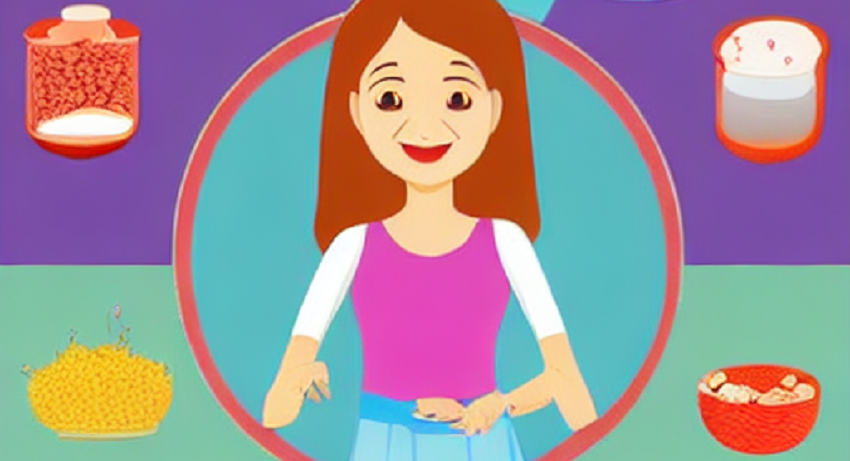What is diabetes?
Diabetes is a chronic disease that affects the body’s ability to regulate blood sugar levels. It occurs when the pancreas does not produce enough insulin or when the body cannot effectively use the insulin it produces. This leads to high blood sugar levels, which can have serious health consequences. There are two main types of diabetes: type 1 diabetes, which is usually diagnosed in childhood or adolescence, and type 2 diabetes, which is more common in adults and is often associated with lifestyle factors such as obesity and physical inactivity. Managing diabetes involves making healthy lifestyle choices, such as eating a balanced diet, exercising regularly, and taking medication as prescribed. It is also important to monitor blood sugar levels regularly and work closely with healthcare professionals to prevent complications and maintain optimal health.
Types of diabetes
Diabetes is a chronic condition that affects millions of people worldwide. There are several types of diabetes, each with its own unique characteristics and treatment approaches. The most common types of diabetes include type 1 diabetes, type 2 diabetes, and gestational diabetes. Type 1 diabetes is an autoimmune disease in which the body’s immune system mistakenly attacks and destroys the insulin-producing cells in the pancreas. Type 2 diabetes, on the other hand, is a metabolic disorder characterized by insulin resistance, where the body’s cells do not respond properly to insulin. Gestational diabetes occurs during pregnancy and usually resolves after childbirth. It is important for individuals with diabetes to manage their condition through a combination of medication, lifestyle changes, and regular monitoring of blood sugar levels. By understanding the different types of diabetes, individuals can better navigate their treatment options and make informed decisions about their health.
Causes of diabetes
Diabetes is a chronic condition that affects millions of people worldwide. It occurs when the body is unable to produce enough insulin or properly use the insulin it does produce. There are several factors that can contribute to the development of diabetes, including genetics, lifestyle choices, and obesity. Additionally, certain medical conditions such as high blood pressure and polycystic ovary syndrome can increase the risk of developing diabetes. Understanding the causes of diabetes is crucial in order to prevent and manage this condition effectively.
Dietary Changes
Importance of a healthy diet
A healthy diet plays a crucial role in managing diabetes. It is important for individuals with diabetes to consume a balanced diet that includes a variety of nutritious foods. A well-planned diet can help control blood sugar levels, maintain a healthy weight, and reduce the risk of complications associated with diabetes. By making healthy food choices, individuals with diabetes can improve their overall health and well-being. It is recommended to consult a healthcare professional or a registered dietitian to create a personalized meal plan that meets individual needs and preferences.
Foods to avoid
When it comes to managing diabetes, it is important to be mindful of the foods you consume. There are certain foods that can significantly impact your blood sugar levels and should be avoided. These include sugary drinks, such as soda and fruit juices, as well as processed foods that are high in refined carbohydrates and added sugars. Additionally, it is best to steer clear of fried foods, as they can be high in unhealthy fats. Instead, focus on incorporating nutrient-dense foods into your diet, such as fresh fruits and vegetables, whole grains, lean proteins, and healthy fats. By making smart food choices, you can help control your blood sugar levels and better manage your diabetes.
Foods to include
When it comes to managing diabetes, the foods you include in your diet play a crucial role. Incorporating the right foods can help regulate blood sugar levels and improve overall health. Some of the best foods to include in a diabetes-friendly diet are whole grains, such as brown rice and quinoa, which provide fiber and essential nutrients. Additionally, fruits and vegetables, especially those with a low glycemic index, like berries and leafy greens, can be beneficial. Lean proteins, such as fish, chicken, and tofu, are also great choices. Lastly, incorporating healthy fats, like avocados and nuts, can help control blood sugar levels and promote heart health. By including these foods in your diet, you can effectively manage your diabetes and improve your overall well-being.
Physical Activity
Benefits of exercise
Regular exercise has numerous benefits for individuals with diabetes. Firstly, exercise helps to improve insulin sensitivity, allowing the body to use insulin more effectively. This can help to lower blood sugar levels and reduce the risk of developing complications associated with diabetes. Additionally, exercise can aid in weight management, which is crucial for individuals with diabetes as excess weight can worsen insulin resistance. Exercise also helps to improve cardiovascular health by lowering blood pressure and reducing the risk of heart disease. Furthermore, regular physical activity can improve overall well-being, reduce stress levels, and enhance mood, all of which are important for managing diabetes. Therefore, incorporating exercise into a daily routine is highly beneficial for individuals with diabetes.
Types of exercises
Regular exercise is an essential component of managing diabetes. It helps control blood sugar levels, improves insulin sensitivity, and reduces the risk of complications associated with diabetes. There are various types of exercises that can be beneficial for individuals with diabetes. Aerobic exercises, such as walking, swimming, and cycling, help improve cardiovascular health and promote weight loss. Strength training exercises, such as lifting weights or using resistance bands, help build muscle mass and increase metabolism. Flexibility exercises, such as yoga or stretching, improve joint mobility and reduce the risk of injury. It is important to consult with a healthcare professional before starting any exercise program to ensure it is safe and suitable for your individual needs.
Exercise routine
Regular exercise is an essential part of managing diabetes. It helps to control blood sugar levels, improve insulin sensitivity, and maintain a healthy weight. Engaging in physical activity for at least 30 minutes a day can have numerous benefits for individuals with diabetes. This can include activities such as walking, jogging, swimming, or cycling. It is important to choose exercises that are enjoyable and sustainable to ensure long-term adherence. Additionally, incorporating strength training exercises into the routine can help improve muscle strength and overall fitness. It is recommended to consult with a healthcare professional before starting any new exercise program, especially for individuals with underlying health conditions.
Herbal Remedies
Aloe vera
Aloe vera is a succulent plant that has been used for centuries for its medicinal properties. It is known for its ability to lower blood sugar levels and improve insulin sensitivity, making it a popular home remedy for diabetes. Aloe vera contains compounds that help regulate glucose levels and promote the production of insulin. Additionally, it has anti-inflammatory properties that can help reduce inflammation in the body, which is beneficial for managing diabetes. Aloe vera can be consumed orally as a juice or added to smoothies, or applied topically as a gel to help heal wounds and reduce skin infections, which are common complications of diabetes. However, it is important to consult with a healthcare professional before incorporating aloe vera into your diabetes management plan to ensure it is safe and appropriate for your individual needs.
Cinnamon
Cinnamon is a popular spice that has been used for centuries in traditional medicine. It is known for its ability to help regulate blood sugar levels, making it a potential home remedy for diabetes. Studies have shown that cinnamon may improve insulin sensitivity, which can help the body better utilize glucose. Additionally, cinnamon has anti-inflammatory properties and may help reduce the risk of heart disease, which is a common complication of diabetes. However, it is important to note that while cinnamon may have potential benefits for managing diabetes, it should not replace medical treatment. It is always best to consult with a healthcare professional before making any changes to your diabetes management plan.
Fenugreek
Fenugreek, also known as methi, is a popular herb with various health benefits, including its potential to help manage diabetes. It contains a compound called galactomannan, which has been found to help lower blood sugar levels. Fenugreek seeds are rich in fiber, which can slow down the absorption of sugar in the bloodstream and improve overall blood sugar control. Additionally, fenugreek may also help increase insulin sensitivity, making it easier for cells to use glucose effectively. It can be consumed in various forms, such as soaked seeds, powdered form, or as a spice in cooking. However, it is important to consult with a healthcare professional before incorporating fenugreek into your diabetes management plan to ensure it is safe and appropriate for your individual needs.
Stress Management
Effects of stress on diabetes
Stress can have a significant impact on diabetes management. When a person is stressed, their body releases stress hormones like cortisol and adrenaline, which can cause blood sugar levels to rise. This can be particularly problematic for individuals with diabetes, as high blood sugar levels can lead to complications and affect overall health. Additionally, stress can make it more difficult to manage diabetes effectively, as it can lead to emotional eating, lack of physical activity, and poor adherence to medication or treatment plans. Therefore, it is important for individuals with diabetes to find healthy ways to cope with stress, such as practicing relaxation techniques, engaging in regular exercise, and seeking support from healthcare professionals or support groups.
Relaxation techniques
Relaxation techniques are an important aspect of managing diabetes. Stress can have a negative impact on blood sugar levels, so finding ways to relax and reduce stress is crucial. Some effective relaxation techniques for diabetes include deep breathing exercises, meditation, yoga, and progressive muscle relaxation. These techniques not only help to calm the mind and reduce stress, but they can also improve insulin sensitivity and promote overall well-being. Incorporating relaxation techniques into your daily routine can be a valuable tool in managing diabetes and maintaining a healthy lifestyle.
Mindfulness practices
Mindfulness practices can be beneficial for individuals with diabetes. By practicing mindfulness, individuals can develop a greater awareness of their thoughts, emotions, and bodily sensations. This can help them better manage stress and make healthier choices in their daily lives. Mindfulness techniques such as deep breathing exercises, meditation, and yoga can also help improve blood sugar control and reduce the risk of complications associated with diabetes. Incorporating mindfulness practices into a diabetes management plan can lead to improved overall well-being and quality of life.
Summary of key points
Diabetes is a chronic condition that affects millions of people worldwide. It is characterized by high blood sugar levels and can lead to various complications if not managed properly. In this article, we will discuss some effective home remedies for diabetes. These remedies include consuming a balanced diet, exercising regularly, managing stress levels, and incorporating certain herbs and spices into your daily routine. It is important to note that while these remedies can help control blood sugar levels, they should not replace medical treatment. It is always recommended to consult with a healthcare professional before making any changes to your diabetes management plan. By following these home remedies and working closely with your healthcare team, you can effectively manage your diabetes and improve your overall health and well-being.
Importance of consulting a healthcare professional
Consulting a healthcare professional is of utmost importance when it comes to managing diabetes. While home remedies can be helpful in controlling blood sugar levels, it is crucial to seek guidance from a medical expert. A healthcare professional can provide personalized advice and create a treatment plan tailored to your specific needs. They can also monitor your progress, make necessary adjustments to your medication or lifestyle, and address any complications that may arise. Regular consultations with a healthcare professional can ensure that you are on the right track and effectively managing your diabetes for a healthier and happier life.
Empowering individuals to take control of their health
Diabetes is a chronic condition that affects millions of people worldwide. It is a condition that requires constant management and monitoring of blood sugar levels. However, individuals with diabetes can take control of their health by adopting certain home remedies. These remedies, often referred to as ‘gharelu upay’ in Hindi, can help individuals manage their blood sugar levels naturally. From consuming bitter gourd juice to practicing yoga and meditation, there are various ways individuals can empower themselves to take control of their health and effectively manage their diabetes. By incorporating these home remedies into their daily routine, individuals can not only improve their overall health but also reduce their dependence on medication. Empowering individuals to take control of their health is crucial in the management of diabetes and can lead to a better quality of life.




